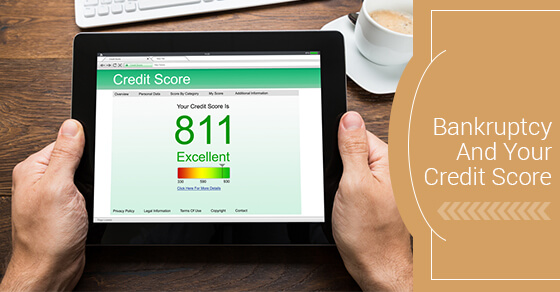Perhaps the biggest deterrent people feel when contemplating bankruptcy is the adverse effect it has on their credit score. It is true that bankruptcy affects one’s credit score, but to what degree? Just how much does bankruptcy really affect one’s credit score?
In this article, we’re going over the basics of bankruptcy and your credit score.
Credit scores
It is best to first understand how credit scores are calculated. Major credit bureaus track all of your credit activity. This includes your credit cards and how/if you pay them off, student loans, mortgages, vehicle loans, business loans, and more. All of the items the bureaus track is factored into one’s credit score, which usually ranges from 300 to 800.
Filing for Bankruptcy
Let’s say that you begin with a fairly average credit score of 680. If you were to file for bankruptcy, you should expect your score to drop by 130 to 150 points. The higher one’s score, the more points one can expect to lose as a result of bankruptcy, so if you have a score of 780, filing for bankruptcy might cost you 220 to 240 points.
Although bankruptcy can have an adverse effect on your credit score, which then in turn as a negative effect on your ability to take out loans and apply for mortgages, a professional trustee can help you minimize these risks.
When bankruptcy is necessary
Bankruptcy doesn’t have to be your first option. Debt management and consolidation are options, but they’re not always possible and sometimes bankruptcy is your best choice. If you are already struggling with debt, then your score is probably already struggling, too.
If you have missed many payments or have consolidated some of your debt, you might not have a high credit score to protect. If this is the case, bankruptcy might be your best bet for a fresh start. The lower your credit score is, the less affect filing for bankruptcy will have on it.
Remember that there are multiple types of bankruptcy, and knowing which one your situation is best suited for is essential in maintaining a healthy credit score in the future. For a better understanding of how bankruptcy will affect your long term credit, and to find out how to choose your best course of action, contact the team at Kevin Thatcher & Associates today.

